-
Reduce Alcohol Harm: Pass the Bill!Most of us want to live, work, play and raise our children in communities that are healthy, safe and connected. When our communities are safe and healthy we give ourselves and our families the best chance to thrive, grow, and enjoy the things that are most important to us. But the massive and varied harms to health, relationships, and livelihoods from alcohol gets in the way of so many of the things that are important to us. We currently have a rare opportunity to address this problem and make our communities better places to live, work, and play with the Sale and Supply of Alcohol (Harm Minimisation) Amendment Bill about to go before parliament. Sign this petition to ask your Member of Parliament, representing your community and our nation, to support the best chance for alcohol reform we have had for ages. What makes the Sale and Supply of Alcohol (Harm Minimisation) Amendment Bill so great? ⭐️ The Bill will remove the special appeals process from local alcohol policy development, so that communities, not alcohol retailers, have a greater say when it comes to local decisions around where, when and how alcohol can be sold. ⭐️ The Bill will also end alcohol advertising and sponsorship of broadcast sport, implementing some of the recommendations from Sir Graham Lowe’s 2014 Ministerial Forum on Alcohol Advertising and Sponsorship. These measures are among the strongest tools available to turn around heavy drinking in our communities. And they are long overdue. Our communities have suffered the effects of our failed liquor laws. Māori, Pasifika and low income communities continue to shoulder the greatest burden of alcohol harm. Alcohol retailers have endlessly appealed Councils’ local alcohol policies so that they no longer resemble the wishes of their constituent communities. Councils’ have expressed frustration at their alcohol policies being watered down to appease the alcohol industry. For this reason, many Councils have formally endorsed the Bill. Ending alcohol sponsorship of broadcast sport serves to protect current and future generations from the established harms of alcohol marketing, especially children who are heavily influenced by their sporting heroes. Winding up alcohol sponsorship of broadcast sport allows communities to experience the richness of connection and community through a healthy activity, without being harmed by the influence of alcohol advertising. Reducing alcohol harm means better mental health, improved child wellbeing, reduced family harm, less pressure on our health system, less pressure on police and emergency services, and improved productivity and economic growth. Alcohol harm impacts almost everything we care about as New Zealanders. Urge your Member of Parliament to be brave and go on the public record with their support of this Bill. Ask them to vote for this Bill at first reading and engage in the Select Committee process. Let’s not squander this opportunity. Together, we can create safer, healthier and fairer communities. The next steps for the Bill: The Bill could be debated as early as August. So it's important to show your support now! The Bill needs 61 votes from MPs to pass its first reading in Parliament so it can proceed to Select Committee. Then communities will be able to have their say on the Bill through the public consultation process. Read our evidence-based factsheets for more information: 👀 The Sale and Supply of Alcohol (Harm Minimisation) Bill https://www.ahw.org.nz/Portals/5/Resources/Fact%20Sheet/2022/Factsheet_Alcohol_Harm_Minimisation_Bill_2022.pdf 👀 Alcohol Sponsorship of Sport in Aotearoa New Zealand https://www.ahw.org.nz/Portals/5/Resources/Fact%20Sheet/2022/AHW%20Alcohol%20sponsorship%20factsheet%20June%202022.pdf For more information, check out our website at www.passthebill.org.nz. This community action initiative is a collaboration between Alcohol Healthwatch and Hāpai te Hauora.8,240 of 9,000 SignaturesCreated by Alcohol Healthwatch

-
Climate Change Chaos: Don't burn Waipā - NO TO TOXIC WASTE BURNING IN WAIPĀIncinerators Pollute Our Air, Land and Water Waste-to-energy incinerators produce outputs in the form of air emissions, ash, and liquid effluent that are all highly contaminated with toxic substances. Incinerator toxins falling back to land are regularly washed into waterways where they combine with leachate from hazardous waste landfills. These contaminants poison fish and other aquatic life as they flow through our streams and rivers into our harbours and eventually into our oceans. These toxins have the potential to enter our food chain at every stage of their journey to the sea. The burning of plastics, tyres and household rubbish is more polluting than coal as a source of electricity. This incinerator threatens Aotearoa New Zealand’s wider efforts to decarbonise the entire energy sector. Environmental impact from this waste-to-energy incinerator: - Te Awamutu would become a net waste importer. In 2020-2021, the Waipā District sent 27,000 tonnes of rubbish to landfill. This is approximately 74 tonnes/per day. This application would allow for up to 480 tonnes of waste per day to be burnt. This means, at a minimum, GCS could import up to 406 tonnes of additional waste into the community per day. Te Awamutu would be exposed to toxic emissions related to the burning of other regions’ rubbish. - Generate approximately 23 tonnes of toxic ash per day, including 2 tonnes of highly contaminated fly ash. This extremely toxic material will need to be dumped in special hazardous waste landfills. - Emit cancer-causing dioxins and furans, sulphur dioxide, nitrogen oxide, mercury and particulate matter that would impact human health as well as contaminate the surrounding land and Mangapiko stream that is immediately next to the proposed site. - Have a carbon footprint many times greater than the same amount of waste being sent to landfill - there is 150 kilo tons per year of CO equivalent (CO2e) from the combustion itself. - Incinerators release greenhouse gases - for each tonne of waste burnt, up to 1.2 tonnes of carbon dioxide is produced. This will impact on Aotearoa New Zealand’s carbon footprint and progress towards achieving the targets agreed to in the Paris Agreement. Effects on the local Te Awamutu community The waste-to-energy incinerator: - will run 24 hours a day, 7 days a week, 365 days of the year - be right next door to a residential neighbourhood and schools, and be situated almost entirely in a floodplain area - will effect the health and well-being of residents living in the vicinity of the waste-to-energy incinerator - will use Racecourse Road as the access point for all of the rubbish trucks, this road is lined with residential houses on one side of the street meaning an increase in noise and vibration from the increase in traffic and trucks delivering rubbish to the waste-to-energy incinerator - will expose residents to odour nuisance and cancer-causing dioxins released into the air - will endanger the wider community by increasing impacts of climate change and taking Aotearoa New Zealand further away from the climate change targets it needs to achieve - will source municipal solid waste from the region, this means Te Awamutu could become a dumping ground for waste from as far north as Hampton Downs and as far South as Taupo - will be burning tyres that will be sourced from all around Aotearoa New Zealand - may adversely affect land-values of neighbouring properties - be the first waste-to-energy incinerator in Aotearoa New Zealand. Incinerators are being shut down around the world - Europe closed its last mixed solid waste-fed plant in Germany (the Burgau plant) in 2015 due to climate and safety considerations. Denmark plans to cut its incinerator capacity by 30% (closing 7 incinerators) over the next decade, otherwise they can't meet their climate change targets. Other plants are failing due to technical/engineering issues. In February two further plants in the United Kingdom alone closed due to technical failure. In order to deliver an adequate return on investment for waste-to-energy incinerators, a guaranteed specific volume of continual waste is needed for efficient operation. This directly undermine local and national efforts to minimise waste by ‘locking in’ waste production. CONCLUSION It is hard to overstate what a disastrous proposal this is. Central government has not been willing to help communities to stop these dangerous polluting proposals. Collective action is our only avenue to keep incinerators out of Aotearoa New Zealand. Please take a few minutes to share this petition today - because your actions do make a difference to the decision-making process. Incinerators destroy the progress we have already made. While we accept that waste is a problem, we know that incinerators are not the answer. Regenerate not incinerate, to create jobs, and invigorate a zero waste circular economy. To help achieve this goal, we hope you will join us in opposing the waste-to-energy incinerator proposal. This is conforming to Climate Change Chaos - further supporting more Oil and Gas extraction and promoting pollution. Waipā needs less archaic colonial waste structures of incineration, but leadership and investment in Waste for a cleaner Waipā. For further information, please join our Facebook group - https://www.facebook.com/groups/1002070993783725. Ka ora te whenua, ka ora te tangata - when the land is well the people are well.2,849 of 3,000 SignaturesCreated by Dontburn Waipa
-
Close the gender and ethnic pay gaps: Make pay gap reporting mandatory for businesses in New ZealandThe soaring cost of living is taking its toll on families across Aotearoa, made worse as winter’s heating bills also begin to bite on household incomes. Many women and people in our Māori, Pasifika and other ethnic communities earn much less than they would if they were a Pākehā man. That’s not fair. It’s not the Kiwi way. The playing field is tilted against too many. That means the challenges of making ends meet at a time when the weekly grocery and petrol bills are a growing burden for many. Requiring big employers to report pay gaps will help reduce child poverty and help end discrimination that impacts on the nation’s wellbeing: the aspirations of Māori, of Pasifika; of other ethnic groups. Aotearoa, we're asking you to stand alongside us as we call for action on this important issue. Please add your voice to our call for urgent action. #NotAnotherWinter8,574 of 9,000 SignaturesCreated by MindtheGap NZ

-
BUY BACK PUKETITI (Ōpua Headland)https://player.vimeo.com/video/724792566 Puketiti is historic land at the heart of the Ōpua community. This land was used as a strategic lookout by Pumuka and his people and as such, is a vital taonga to mana whenua. Imagine Pumuka scanning the Bay from the lookout. He would have extensive views up the Waikare Inlet, out towards the Black rocks and over the sea to the many visible Pa sites. He would see hundreds of waka transporting people and supplies across the water. Puketiti is a destination. A prominent destination for cyclists and walkers. A safe destination in a tsunami as evidenced in 2021. A perfect lookout to celebrate Matariki and our New Zealand history. A place for future generations to learn and be creative while surrounded by panoramic land and sea views, nature and history. If we do not act now this precious land covered in trees planted by past generations of school children, will be flattened, developed and turned into 17 premium residential sections. Puketiti and the lookout will be no more. I am in no doubt that the underhand way this land was sold was a purposeful act intending to mislead and undermine the Ōpua community and mana whenua. Secrecy appears to have been required to obtain resource consent for the building sites. Without the secrecy, I am certain that this project would have been stopped in its infancy. ‘Save Ōpua’s Soul’ (S.O.S.) is a group of concerned local residents who feel very strongly about the current loss of this land, the total lack of respect shown to mana whenua and the skulduggery surrounding the secrecy of this land sale. We ask FNHL and FNDC to listen to the people whom they represent. A mistake has been made so put it right - BUY BACK PUKETITI! This petition has been made in discussion with and full support of mana whenua who are also represented in our S.O.S membership. In our 2019 petition “Stop Puketiti Development”, we reached 1,232 online signatures! Links to further info: Newspaper Article covering land sale and occupation: https://www.stuff.co.nz/pou-tiaki/124139594/campaigners-plan-to-occupy-key-northland-land-until-its-made-into-a-reserve Newspaper Article covering land sale and protest: https://www.rnz.co.nz/news/te-manu-korihi/428730/ngapuhi-protesters-prepared-to-stand-in-front-of-bulldozers-to-stop-development-on-wahi-tapu-land Waitangi Day Protest: https://www.nzherald.co.nz/northern-advocate/news/waitangi-day-labours-maori-caucus-met-with-small-protest-over-land-sale-at-te-tii-marae/LP2Z4EHZS3GWJWHYS6ZL6ZEGOM/ Facebook Page of occupation: https://www.facebook.com/TE-ROROA-KI-OPUA-105941851046020/581 of 600 SignaturesCreated by Paula Beck
-
Listen to the voices of Care Experienced Rangatahi: Stop the Oversight of Oranga Tamariki BillThis bill would disestablish the Children's Commissioner and will result in a weakening of independent monitoring of Oranga Tamariki and effective advocacy for children and young people. Tracie Shipton, CEO of VOYCE, shared concerns that “The Government has not listened to a single recommendation from young people with lived experience on this Bill. These young people have been effectively silenced, and the new systems outlined by the Bill is designed to further muffle and weaken their voices". We join with VOYCE and care experienced young people in calling for this bill to be stopped.1,905 of 2,000 SignaturesCreated by Aaron Hendry
-
Have your say on the Christchurch Stadium to save the climateThe construction cost of the Christchurch Stadium is massive and there are a lot of GreenHouse Gases emitted during the manufacture and transportation of steel and concrete that is needed in large volumes for the Stadium’s proposed design. https://www.stuff.co.nz/environment/climate-news/128957620/criticism-over-enormous-carbon-footprint-of-christchurchs-planned-stadium The current stadium has small crowds and the planned stadium is likely oversized. With an expected economic benefit over 25 years of $462.2 million and an expected cost over that time of $847 million (made up of $683m project cost + $4.2m x 25 years operating cost + $59m cost of land purchase), the stadium is expected to lose $385 million with a return of $0.55 on every dollar spent. (Numbers are from the Council's consultation page, and the cost of land purchase being additional was confirmed by email correspondence.) It does not make sense to push on with the Stadium. However previous Council decisions on the Stadium have had great interest from the rugby community, and the Crusaders chief executive has submitted for this consultation that he wants the Council to invest the additional $150 million to continue as planned. Last year, a petition signed by 24,000 people led to the Council opting for the $50m more expensive 30,000 seat option. The Canterbury Rugby Football Union has emailed the 25,000 in its database asking them to express support for the 30,000 seat covered Stadium on the Council's website, and the Canterbury Employers' Chamber of Commerce has encouraged its 2700 members to call for the stadium to be built without delay. This is why the submission YOU (Christchurch or neighbouring council resident) make is so important for ensuring a sensible decision is made. Only a week since consultation started and already 18,000 submissions have been received. Aside from some personal details, the consultation only has one question. Should the Council: - Invest an additional up to $150 million to enable the project to continue as planned, - Stop the project altogether, or - Pause and re-evaluate the project. Councillors have said that people may think they pay lip service to consultations, but they would all be paying close attention to this one. They have also said that letters to the editor, posts on facebook, petitions, etc. won't make any difference unless you actually make a submission. This petition will be closed after consultation closes on the 5th of July. So please make a submission now at Te Kaha multi-use arena budget consultation https://ccc.govt.nz/the-council/haveyoursay/show/514. It takes hardly any time to tick a box. Spread the word and if anyone knows someone in School Strike 4 Climate this may be something they would be interested in.28 of 100 SignaturesCreated by Wiremu Thomson
-
Paihia Needs a Voice on our Future - bring the June 15th meeting to Paihia!Our Mayor and Far North District Councillors plan to hold a meeting about our Paihia Waterfront, outside of Pahia and exclude the public. They are saying the meeting is "Commercially sensitive". We say "no way!" Commercial interests cannot override open transparent decision-making. The Council and FNHL know how deeply concerned local residents are: - Councillor Kelly Stratford receipt of the 4000 signature 'No Sea Walls' petition 2021 - Community Board member Belinda Ward attended the vibrant Paihia public meeting 2021 - FNHL attended the powerful pleas at the Te Tii Marae hui 2021 - SEACHANGE group has spoken since 2020 at Council meetings. Imagine the future of our community if our needs are not taken into account. For the sake of our children, our grandchildren, and life in our beautiful Bay, everyone MUST be actively involved in decision-making. It's nonsensical to exclude Paihia Residents from decisions that affect us - and of course, that's what the law says too: Section 14 Local Government Act (2002): 'In performing its role, a local authority must act in accordance with the following principles: (a) a local authority should— (i) conduct its business in an open, transparent, and democratically accountable manner; and (ii) give effect to its identified priorities and desired outcomes in an efficient and effective manner: (b) a local authority should make itself aware of, and should have regard to, the views of all of its communities; and (c) when making a decision, a local authority should take account of— (i)the diversity of the community, and the community’s interests, within its district or region; and (ii) the interests of future as well as current communities; and (iii) the likely impact of any decision on each aspect of well-being referred to in section 10: (d) a local authority should provide opportunities for Māori to contribute to its decision-making processes.' If we are to retain trust in the Council, our needs must be heard alongside those of FNHL and other contractors.314 of 400 SignaturesCreated by Jane Banfield
-
He Piriti Hīkoi ki Kāeo - Install a Pedestrian Footbridge in KāeoThe existing foot bridge is unsafe and a hazardous route for pedestrians to use. The existing bridge is too narrow and presents a danger for tamariki, kaumatua and kuia when traffic is going over the bridge at the same time. The current bridge has no provisions for wheelchairs, that simply do not fit (on the narrow pedestrian strips). Parents with strollers are also challenged by the existing bridges insufficient space for pedestrian users. With future upgrade of State Highway 10 Kāeo Bridge to two-lanes, the volume and frequency of traffic and trucks using the bridge will increase. It is therefore imperative a new footbridge is planned now and constructed before an accident occurs.279 of 500 SignaturesCreated by Whangaroa Community Trust .
-
Ensure funding and timely access to diagnosis for neurodivergent peopleEveryone, no matter where they live, or how unique their minds are, deserve to have the support they need to live full and happy lives. But at the moment, someone seeking a diagnosis for autism, ADHD, dyslexia and other cognitive, learning and sensory disabilities, has to navigate a complicated and stressful system. Wait times within the public system can be years long and the cost to go privately can be anywhere from $500 - $3500. This means that many people have to go without a diagnosis for long periods of time and therefore miss out on access to the support they need. This is an unfair system that needs to change. People should not have to be privileged or wealthy to access the assistance they require.413 of 500 SignaturesCreated by Saoirse Lynch
-
Our children with Crohn’s disease and ulcerative colitis deserve the same care as adults!New Zealand has one of the highest rates of Crohn’s disease and ulcerative colitis (known as inflammatory bowel disease or “IBD”) in the world. These diseases are chronic and relapsing illnesses, characterised by sudden flares, emergency department visits, frequent hospitalisations, and, often, surgery. It is estimated that there are 20,792 New Zealanders with these diseases and the number is expected to double in the next ten years. Many of these patients are children. While almost every DHB in NZ funds adult IBD specialty nurses, there is not a single paediatric IBD nurse in all of New Zealand, not even at our largest paediatric centre, Starship Hospital. The issue of equity for this very vulnerable segment of our population needs to be raised. The critical role of the IBD nurse is to provide direct, immediate medical access and assessment to children when their disease suddenly flares. In these situations, it is prompt treatment which prevents lengthy hospitalisations and life-altering surgery. In addition, IBD nurses are the primary educators of both patients and caregivers, they manage immunosuppressive medications, ensure that preventative measures such as vaccinations and screening procedures are up-to-date, provide advice on diet, manage side effects of medications, and ensure compliance with treatment regimens. Not only does the work of the IBD nurse improve patient outcomes, but it significantly frees up time for their physician colleagues to perform other tasks. The impact of the IBD Clinical Nurse Specialist on patient outcomes and hospital costs has been well and repeatedly documented. A recent study reported in the British Medical Journal in 2020, demonstrated a one-third decrease in hospitalisations in the year following the addition of an IBD nurse to the GE team (P=0.002). Similar results were reported in a study from the Royal Adelaide Hospital in the Journal of Crohn’s and Colitis. Hiring a single nurse will not only save taxpayers tens of thousands of dollars, but, most importantly, will help keep our children out of the hospital and out of surgical theatres. It will ensure that our children have access to the same quality care that is routinely available to adult IBD patients in New Zealand and to other children throughout the world.1,559 of 2,000 SignaturesCreated by Richard Stein
-
Ban the Sale of Nazi MemorabiliaNo matter where we were born, the colour of our skin or our religious beliefs we all deserve to live in peace with our families and feel safe here in Aotearoa. But right now, there is an increase in white supremacy and it undermines all of our peace and safety. Nazi symbols are often used by white supremacists to make known their discriminatory views, and can cause harm to both survivors of the World War II and other minority groups. One of the places profiting from the demand for Nazi memorabilia is Lipscombe Auction House in Nelson who has just held another auction that included the sale of Nazi Memorabilia. This isn't the first time they have auctioned Nazi memorabilia, previously a small group of Nelson residents protested the sale, including those leading this campaign, and were physically ejected from the auction. This time the auction was held online so those bidding were hidden. Situations like this show we need a change in the legislation, as we unfortunately cannot rely on people’s common decency to not sell and distribute Nazi memorabilia. The last auction was held a week before Anzac Day and on the anniversary of the Warsaw Ghetto Uprising.[1] In a country who aspires to peace and care for all its residents, there is no place for the hateful symbols of Nazi Germany. The sale of Nazi memorabilia is banned in a number of countries including France, Sweden, Brazil, and Germany where the symbols are considered to be ‘anti-constitutional’. While the sale of Nazi memorabilia is not illegal in NZ, some organisations include auction sites such as TradeMe and eBay do not allow the trade in such items. However, we think that the issue requires national regulation, and it should not just sit with the decisions of private organisations. We believe that the government should introduce a ban on Nazi memorabilia. By coming together and calling for a ban on the sale and display of Nazi symbols, we can help put Aotearoa on a path towards a future free of discrimination and fear. References [1] https://en.wikipedia.org/wiki/Warsaw_Ghetto_Uprising https://theconversation.com/the-extremism-visible-at-the-parliament-protest-has-been-growing-in-nz-for-years-is-enough-being-done-177831 https://www.stuff.co.nz/national/122972931/nazi-memorabilia-auction-plan-in-nelson-sparks-concern https://www.stuff.co.nz/national/122977111/nazi-flags-and-badges-sold-at-nelson-auction-despite-protests https://www.rnz.co.nz/news/national/387199/shop-owner-defends-sale-of-disturbing-nazi-memorabilia https://www.stuff.co.nz/national/113993233/nazi-memorabilia-for-sale-at-auckland-antiques-shop-offensive https://www.nzherald.co.nz/nz/nazi-memorabilia-removed-from-trade-me/E7UTNWRYG5YLMFV4FY7OCP3ACM/ https://nelsonweekly.co.nz/2020/10/nazi-memorabilia-auction-offensive/ https://www.newshub.co.nz/home/new-zealand/2019/07/returned-services-association-condemns-nazi-replicas-sold-at-auckland-antiques-store.html https://www.theguardian.com/australia-news/2022/apr/04/nsw-to-ban-public-display-of-nazi-flags-and-swastikas https://www.newshub.co.nz/home/new-zealand/2018/08/jewish-council-condemns-nazi-re-enactors-in-auckland-park.html82 of 100 SignaturesCreated by John-Paul Pochin
-
End the Supermarket CrisisEveryone needs to eat and we all deserve to be able to afford healthy, nutritious food. But right now more and more families are having to go without because of the high price of food. Even basic items like vegetables, milk and bread are becoming expensive. There is a food cost crisis. The crisis is a result of successive governments allowing two supermarket chains, Woolworths and Foodstuffs, to dominate our food supply. The profits of these 2 big food chains are extraordinary. The Commerce Commission report showed that the profits of the duopolies are somewhere between 12.7 and 13.1%. (1). By international standards a normal rate of return should be 5.5%. (2). The Commerce Commission estimated that Foodstuffs and Woolworths combined are making about $430 million a year in excess profits. (3) It's not just customers they’re short changing either, the people growing and supplying food to the supermarkets are left with little option to negotiate fairer prices for their produce. One supplier reported that “We have two choices 1) sell to them under their terms 2) don’t sell to them at all”.(4) We all want to be able to trust our supermarkets to deliver us decent food at a decent price. But right now, it is clear that these two supermarket giants cannot to be trusted with the reins to our food supply. Our government needs to step in and create legislation to ensure our food system is fair and that families can keep food on the table. We need the Government to take urgent and definitive action to break up the supermarket duopoly. References: 1,2,3,4: Market study into the grocery sector, Commerce Commission, March 2022: https://comcom.govt.nz/__data/assets/pdf_file/0024/278403/Market-Study-into-the-retail-grocery-sector-Final-report-8-March-2022.pdf1,009 of 2,000 SignaturesCreated by Rene Jansen and Sonja Lamers


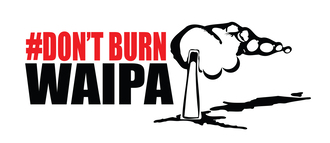
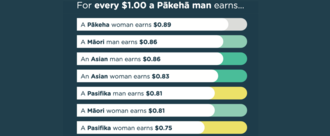.png)
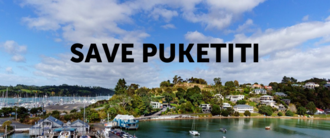
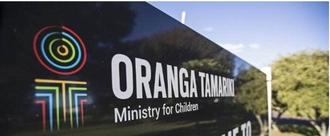

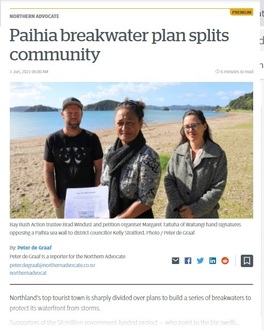
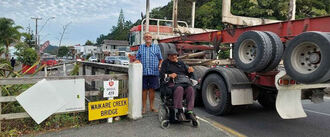
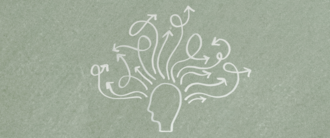
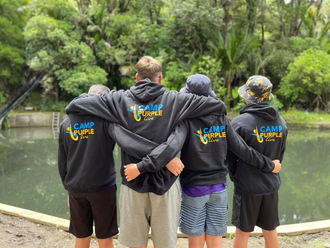
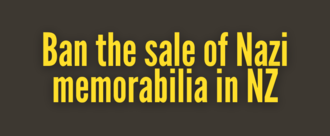
_(1).png)